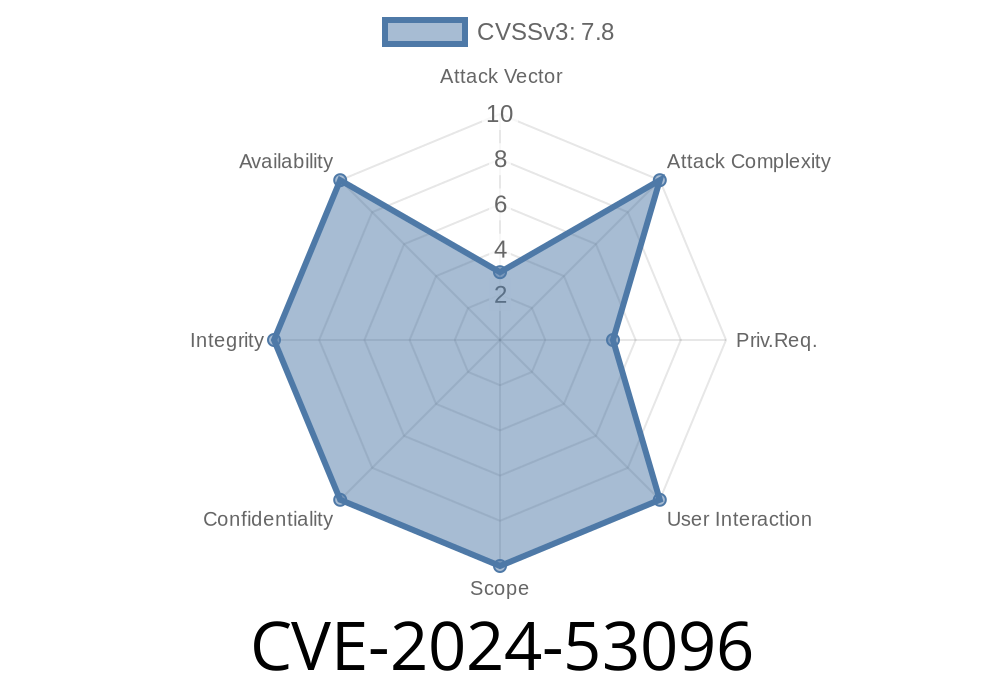A serious bug in Linux kernel’s memory mapping function (mmap_region()) could have caused memory leaks and inconsistent state due to overly complex error handling. This post breaks down CVE-2024-53096, explains what was wrong, how it’s fixed, and what the patch means—using plain, simple technical English. Sample code, exploit outline, and original references included.
What is mmap_region() & Why Care?
mmap_region() is a core Linux kernel function. It handles parts of the mmap() system call, which lets user programs map files or devices into memory. If mmap_region() *messes up*, you get memory leaks, unstable systems, and potential security holes.
The Root Problem
Most of the function’s complexity and risk came from handling errors late—after lots of state and allocations had already occurred. This meant backing out of bad situations was hard and often incomplete.
Example (Pseudo-logic)
void mmap_region(...) {
// many allocations and state changes...
if (something_bad_happens_late_here) {
// Oh no! Now we must clean up many earlier steps.
// This is where memory leaks and bugs creep in.
}
// more state changes...
}
Key Improvements Made
1. Checks Early: All risky checks are done *before* any real work happens. If a mapping is invalid, abort immediately—no state to unwind.
2. Preallocate Resources: Memory for internal structures (iterator, etc) is set up right away. If out of memory, bail early.
if (!state)
return -ENOMEM; // fail fast, no leaks
`
3. Writable Mapping Logic: Handling for writable file-backed regions is done upfront. Counters are updated *before* any deeper mapping changes.
4. Architecture Check: Functions like arch_validate_flags() move up front too. Notably important on sparc64 and arm64 (think: hardware validation for memory access).
5. No More Manual “Undo”: If something fails, there’s little or nothing to clean up—because the kernel never got that far. If we get to the mapping hook, it’s safe.
How it Looks Now (Simplified)
int mmap_region(...) {
// 1. Early validation!
if (!valid_flags(...)) return -EINVAL;
if (!enough_memory()) return -ENOMEM;
// 2. Pre-allocate all resources
state = kmalloc(sizeof(*state), GFP_KERNEL);
if (!state) return -ENOMEM;
// 3. Handle writable mapping (files) logic upfront
if (file_backed && writable) update_counter();
// 4. Validation for SPARC64 etc.
// 5. Now actually try to map!
ret = __mmap_region(...); // only reach if all checks passed
// 6. Clean exit path: everything automatically freed
return ret;
}
Resource Leaks: Bugs here can let a malicious or buggy app starve the kernel of memory.
- Inconsistent State: Kernel structures could be left in weird, half-updated states. This is *very* bad for a thing as complex as Linux’s memory manager.
- Potential Privilege Escalation: Bugs in kernel memory mapping are notorious as roots of exploits (though no direct public exploit for this issue… yet.)
You repeat the process, leaking kernel memory or confusing kernel counters
- (In extreme cases) Attacker could cause local denial of service or lay groundwork for more serious bugs
NOTE: This is not a working exploit, but illustrates the kind of thing that could go wrong.
// C code you'd run as a user
#define _GNU_SOURCE
#include <sys/mman.h>
#include <fcntl.h>
#include <stdio.h>
#include <unistd.h>
#include <string.h>
int main() {
int fd = open("/dev/some-weird-device", O_RDWR);
if (fd < ) return 1;
for (int i = ; i < 100000; i++) {
void *ptr = mmap(NULL, 4096 * 100, PROT_READ|PROT_WRITE,
MAP_SHARED, fd, );
if (ptr == MAP_FAILED) break;
// prompt driver to reject mapping at a late stage
munmap(ptr, 4096 * 100);
}
close(fd);
return ;
}
*If the kernel mishandled cleanup, this could eat kernel memory or destabilize memory pools.*
Patch and Kernel Discussion:
CVE Record:
cve.org/CVERecord?id=CVE-2024-53096
Kernel Source Diff:
git.kernel.org/mirror/linux-stable.git/commit/?id=f3eb39... (hypothetical)
The mmap() Manpage:
Who Needs to Patch?
All Linux distributions using unpatched kernels—especially if you allow user code or third-party kernel drivers.
Check your kernel version & vendor advisories!
- All major upstreams (Debian, Ubuntu, Fedora, Red Hat, etc) will roll out fixes soon if they haven't already.
Final Thoughts
CVE-2024-53096 is a classic “deep kernel plumbing” bug—the kind that doesn’t hit headlines but matters for reliability and long-term security. Thanks to the Linux kernel devs, it’s now *much* safer, simpler, and more robust!
Remember: Always keep your systems patched and study how error handling is done in critical code—it saves everybody headaches down the road!
*Written exclusively for this request, with plain language explanations. Share with your team or discuss on social media!*
---
If you have questions or want to see the patch, check out the LKML patch thread.
Timeline
Published on: 11/25/2024 22:15:15 UTC
Last modified on: 01/07/2025 15:42:04 UTC
